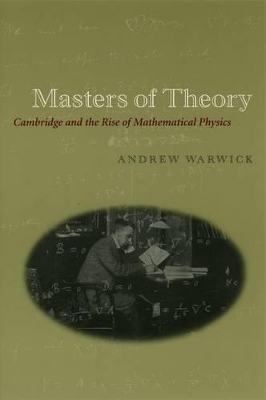When Isaac Newton published the "Principia" three centuries ago, only a few scholars were capable of understanding his conceptually demanding work. Yet this esoteric knowledge quickly became accessible in the 19th and early 20th centuries, when Britain produced many leading mathematical physicists. In this book, Andrew Warwick shows how the education of these "masters of theory" led them to transform our understanding of everything from the flight of a boomerang to the structure of the universe. Warwick focuses on Cambridge University, where many of the best physicists trained. He begins by tracing the dramatic changes in undergraduate education there since the 18th century, especially the gradual emergence of the private tutor as the most important teacher of mathematics. Next he explores the material culture of mathematics instruction, showing how the humble pen and paper so crucial to this study transformed everything from classroom teaching to final examinations.
Balancing their intense intellectual work with strenuous physical exercise, the students themselves - known as the "Wranglers" - helped foster the competitive spirit that drove them in the classroom and informed the Victorian ideal of a manly student. Finally, by investigating several historical "cases", such as the reception of Albert Einstein's special and general theories of relativity, Warwick shows how the production, transmission and reception of new knowledge was profoundly shaped by the skills taught to Cambridge undergraduates. Drawing on a wealth of new archival evidence and illustrations, "Master of Theory" examines the origins of a cultural tradition through which the complex world of theoretical physics was made commonplace.
- ISBN10 0226873749
- ISBN13 9780226873749
- Publish Date 1 July 2003
- Publish Status Active
- Publish Country US
- Imprint University of Chicago Press
- Format Hardcover
- Pages 586
- Language English
- URL http://wiley.com/remtitle.cgi?isbn=9780226873749
